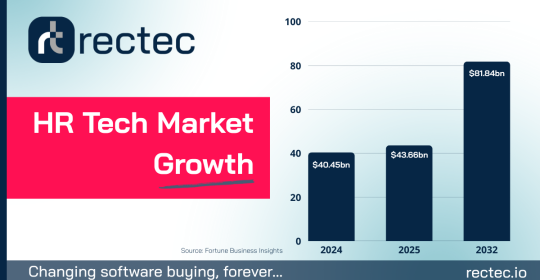This explosive growth has created a highly competitive environment—not just for market share but for the talent that drives innovation, operations, and success. Recruiting top talent in the online gambling industry is now one of the most challenging tasks for companies, as they vie to attract and retain skilled professionals who can push their brands to the forefront of this rapidly evolving market.
One of the main drivers of this competition “is the industry’s relentless pace of technological innovation” said the online casino website FruityKing. Online gambling platforms have moved far beyond basic slots and table games to include live dealer experiences, virtual reality (VR) environments, blockchain-integrated systems, and AI-driven personalised recommendations. To develop and maintain these cutting-edge features, companies need highly skilled software developers, data scientists, and machine learning experts. However, these professionals are in high demand across multiple industries, from fintech to e-commerce, making it a constant battle for gambling operators to secure top-tier tech talent.
Adding to the complexity is the industry’s global reach. Online gambling is a worldwide phenomenon, and companies often operate across multiple jurisdictions, each with its own regulatory requirements and market conditions. This requires not only technical expertise but also professionals skilled in navigating compliance, legal frameworks, and market strategy. Additionally, secure and reliable cross-border connectivity is crucial, and many companies rely on VPNs (Virtual Private Networks) to ensure safe access to sensitive data and region-specific services while maintaining regulatory compliance. Experts from VPNpro recommend using VPNs for online gambling, highlighting their role in protecting user privacy, bypassing regional restrictions, and ensuring a secure connection in a highly regulated industry.
The rise of sports betting, particularly in markets like the United States, has further intensified the scramble for talent. Since the repeal of the Professional and Amateur Sports Protection Act (PASPA) in 2018, sports betting has exploded in popularity, creating a surge in demand for professionals who can build platforms, negotiate partnerships, and develop innovative betting products. The need for specialists in areas such as live betting technology, odds creation, and user engagement tools has skyrocketed, leaving companies competing fiercely for a relatively small pool of experienced candidates.
Attracting talent in the online gambling industry also comes with its own set of unique challenges. Despite the sector’s growth and legitimacy, it still carries a certain stigma in some regions, which can deter potential hires. Professionals from other industries may hesitate to join a gambling company due to concerns about public perception or personal values. To combat this, forward-thinking companies have been rebranding themselves as tech-driven entertainment providers, highlighting the innovative and exciting nature of their work. By focusing on the cutting-edge technologies and global reach of the industry, these companies are reshaping their image to appeal to top talent.
Employee expectations have also shifted dramatically, particularly in the wake of the COVID-19 pandemic. Remote work has become a standard demand, and companies in the online gambling industry must now offer flexible working arrangements to stay competitive. Additionally, the modern workforce is increasingly prioritising benefits like mental health support, professional development opportunities, and diversity initiatives. Companies that fail to adapt their offerings to meet these expectations risk losing out to more progressive competitors who understand what today’s talent is looking for.
Retention is another critical issue. In a market where skills are highly sought after, employee poaching is a constant concern. Talented individuals are frequently approached with offers of higher salaries, better benefits, or more senior roles, making it difficult for companies to maintain a stable workforce. This has led to an arms race in compensation packages, with some companies offering eye-popping salaries, equity options, and generous bonuses to attract and keep top talent. While this can secure the best professionals, it also increases operational costs, putting pressure on smaller operators to keep up.
Another dimension of this talent competition lies in the rise of start-ups within the online gambling sector. These smaller companies often offer a more dynamic, entrepreneurial environment that appeals to ambitious professionals eager to make a significant impact. Start-ups may not always be able to compete on salary, but they often compensate with equity, creative freedom, and the promise of rapid career progression. For larger, more established operators, this creates additional pressure to differentiate themselves as employers of choice, often by emphasizing their stability, resources, and global opportunities.
Interestingly, some companies are now looking beyond traditional recruitment channels to address the talent shortage. Partnerships with universities, coding academies, and industry-specific training programs are becoming more common, as companies aim to nurture the next generation of professionals. Apprenticeships and internships tailored to the online gambling sector are helping to build a pipeline of talent with the specialised skills needed to thrive in the industry. These initiatives not only fill immediate gaps but also demonstrate a long-term commitment to talent development, which can enhance a company’s reputation as an employer.
Despite the challenges, the intense competition for talent is driving positive change in the industry. Companies are becoming more transparent about their culture, values, and career development opportunities, as these factors increasingly influence job seekers. The focus on diversity and inclusion is also growing, as businesses recognise that diverse teams foster creativity and innovation. By prioritising workplace culture and employee satisfaction, companies can not only attract the best candidates but also position themselves as leaders in a competitive market.
The online gambling industry’s fight for top talent is far from over, and it’s unlikely to slow down anytime soon. As the market continues to grow and evolve, so too will the demand for skilled professionals who can navigate its complexities and harness its opportunities. Companies that succeed in this battle will be those that adapt quickly, innovate boldly, and place a strong emphasis on their people. After all, in an industry built on competition, it’s the talent behind the scenes that truly drives success.






